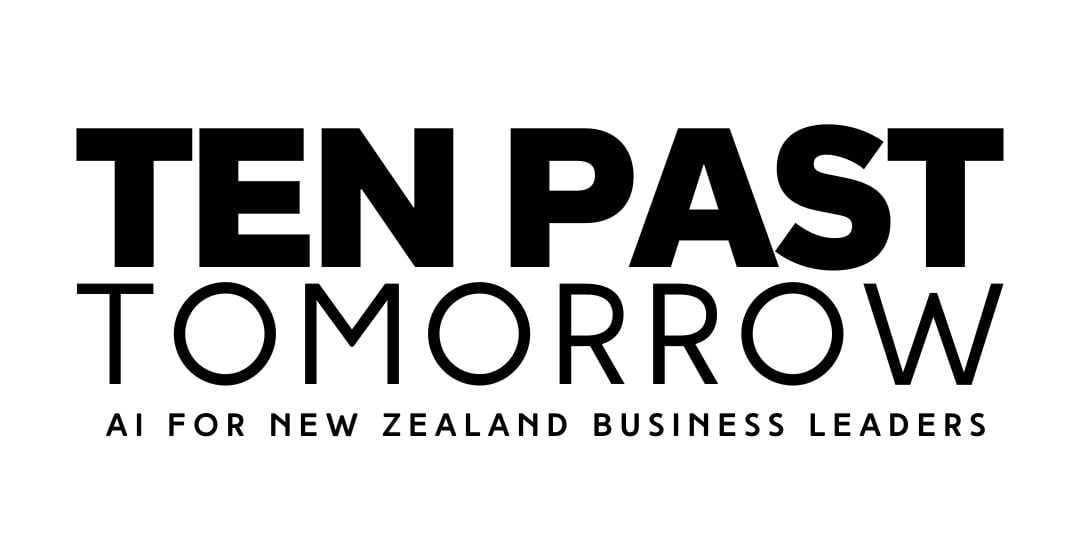Generative AI: Revolutionizing Customer Service for SMEs
I have 3 local cafes in my closest town. I go to the same one every morning, day in, day out.
Every employee there knows my name, the coffee I drink, and the names of my children. The coffee of the two other cafes in town is equally good, but I don’t go to them. Because of the personalized experience I get at my cafe each morning. There’s just no substitute for it.
As a business leader, I’m sure you strive to create this level of personalized customer experience in your own company.
Generative AI is making it easier than ever to tailor your customer service and make your customers feel like they're walking into their favorite cafe each time they interact with your business.
Generative AI: A quick primer
Generative AI is a type of artificial intelligence that can generate new content by learning from existing data. This technology is behind many of the groundbreaking tools you've likely heard of, such as OpenAI's ChatGPT and DALL-E.
What makes generative AI so exciting is its ability to create content that's almost indistinguishable from what a human would produce, enabling us to generate images, text, and even customer service interactions that are tailored to individual customers.
A recent study: Generative AI at work
A recent study by researchers at Stanford and MIT looked at how generative AI impacts customer service agents' jobs at a large software firm.
This study provides valuable insights into the real-world applications of AI in a business setting and I think it can serve as a blueprint for SMEs looking to implement AI in their own customer service departments.
The study followed over 5,000 customer service agents, split into two groups. One group was given access to a generative AI tool, while the other continued with their usual methods. The AI tool monitored customer interactions in real time (presumably by listening to calls) and offered suggestions on what the agents should say, helping them navigate complex situations more effectively.
Here are the most prevalent findings from the study, which I’ll develop in more detail below:
-
Generative AI solutions have the potential to boost productivity by an impressive 14% in specific office roles, significantly elevating the performance of those who may be struggling.
-
With AI in the mix, the learning process is accelerated, enabling employees to amass the equivalent of six months' experience in a mere two months.
-
When high-performing workers share their invaluable expertise, AI systems can magnify this knowledge and distribute it throughout the entire organization for maximum benefit.
-
To fully capitalize on AI's impact on productivity and employee performance, businesses must rethink their approach to performance evaluation, compensation structures, and workforce management.
-
As AI takes on a more prominent role in knowledge transfer tasks, middle managers, who have traditionally been the custodians of tacit knowledge, may need to reassess their roles and responsibilities within the organization.
The Benefits: Happier customers and more efficient agents
The results of the study were impressive, to say the least.
The customer service agents who used the AI tool resolved 14 % more issues per hour than those who didn't.
They were also able to handle multiple customer calls simultaneously and complete interactions more quickly, boosting their overall productivity.
But the benefits didn't stop there. The AI-generated suggestions helped the customer service agents be more patient and empathetic with their customers, leading to more satisfied and happier customers.
As a result, the agents themselves were also happier and more satisfied with their work.
Closing the skills gap
One of the most significant findings of the study was that generative AI was particularly helpful for less-skilled workers or those who had been with the company for a shorter time.
The AI tool enabled these employees to perform at the same level as their more experienced colleagues after just two months on the job, significantly accelerating their skill development.
Key takeaway: Lower performing employees were raised up to the level of “employee of the month” performers.
While there is a concern that reliance on AI-generated suggestions might hinder employees' ability to build and retain skills, the study suggested that employees were learning by doing, just in a faster and more efficient way.
More time for managers
The use of AI in customer service also had a positive impact on managers.
In essence, as the AI was helping to train new employees, managers spent less time on training and were able to focus on other tasks.
This freed-up time could potentially allow managers to take on larger teams or tackle more strategic projects, ultimately benefiting the entire company.
Embracing the future of business: The power of AI and human skill combined
When I read reviews of this study on generative AI's impact on customer service performance, my first thoughts were about the powerful potential synergy between AI and human skills.
This potent combination has the potential to drive business success, not just in customer service but in many aspects of our businesses.
By embracing a blended approach between human experience and artificial intelligence, businesses can unlock unprecedented opportunities that haven’t been accessible to us until now.
The key lies in recognizing the complementary strengths of AI and human employees. AI tools can enhance human capabilities, allowing our workforces to achieve more, in less time, while maintaining a high level of customer satisfaction.
In return, human employees can bring creativity, empathy, and the ability to adapt to complex situations, traits that AI has not yet mastered.
By integrating AI into our operations, we can empower our employees to focus on tasks that require a human touch, such as building relationships, solving unique problems, and making critical decisions. This approach also enables our employees to develop new skills and adapt to the ever-evolving business landscape, fostering a culture of continuous learning and growth.
Moreover, this combined approach helps us leverage the collective intelligence of the entire organization. As shown in the Stanford / MIT study, when AI learns from the expertise of your most skilled employees, it can democratize that knowledge, making it accessible to all team members. This shared intelligence, along with the diverse perspectives of your human workforce, can foster innovation and drive better decision-making.
To truly capitalize on the power of AI and human skill working together, it's essential to create an environment that supports collaboration and open communication.
Encourage your employees to embrace AI as a valuable tool that can help them become more effective in their roles, rather than perceiving it as a threat to job security. By fostering a culture of trust, curiosity, and continuous improvement, you can inspire your team to push the boundaries of what's possible and achieve new levels of success.
Every day I am seeing more and more evidence that the future of business lies in the harmonious integration of AI and human skill. The remarkable results from the customer service performance study only reinforced my belief.



Got something to add? Chime in below...